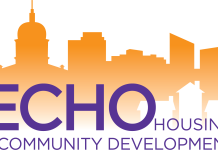Vanderburgh County farmers and agricultural producers directly impacted by the COVID-19 pandemic can apply for financial assistance through the U.S. Department of Agriculture’s Coronavirus Food Assistance Program, according to local legislators.
State Rep. Matt Hostettler (R-Fort Branch) said the initiative is providing $16 billion in direct relief payments for those in the agriculture industry experiencing income losses as a result of decreased demand for their products.
“Our farmers are critical to the success of the Hoosier economy,” Hostettler said. “This funding is much-needed assistance to help alleviate financial burdens some producers may be experiencing until the food supply chain recovers.”
To be eligible for assistance, producers of agricultural commodities must have experienced at least a 5% price decline or who had losses due to market supply chain disruptions due to COVID-19 and face additional significant market costs. According to State Rep. Wendy McNamara (R-Evansville), eligible products include specialty and non-specialty crops, wool, livestock and dairy.
“Farming has played an important role in developing Indiana as a state,” McNamara said. “To help farmers continue their businesses, this program may offset some of the profit loss they might have suffered because of the pandemic.”
State Rep. Holli Sullivan (R-Evansville) said applications for the Coronavirus Food Assistance Program are open through Aug. 28 and available through the Farm Service Agency at local USDA Service Centers. For more information including eligibility requirements and finding local service centers, visit farmers.gov/cfap.
“While these funds are crucial, there is a limited amount to go around,” Sullivan said. “I encourage those who have experienced significant losses to apply for the program immediately. Farmers who do may be better positioned for when the economy fully recovers.”
Additionally, the USDA is supporting agricultural producers by purchasing $3 billion in fresh produce, dairy and meat to be distributed to food banks, community and faith-based organizations, and other nonprofits who serve those in need.




